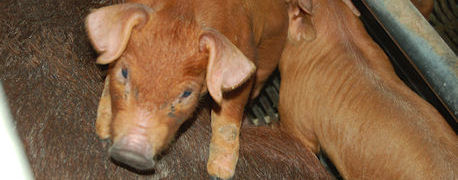
Porcine Epidemic Diarrhea virus is on the move and is said to be the main cause for U.S. hog herd numbers falling by 1% from last quarter.
PEDv is a virus similar to transmissible gastroenteritis, another disease only affecting pigs. It poses no threat to other animals or humans and poses no risk to food safety.
However, it can be devastating to herds. Manure is a primary way the virus spreads from pig to pig and from farm to farm. On some sow farms, the virus has caused mortality rates in young pigs of up to 100%.
There is no cure for PEDv, which causes diarrhea, vomiting and dehydration in hogs and could result in death, particularly in baby pigs whose immune systems can be weak. Older pigs can be affected but will recover in a matter of a few weeks after contracting the disease.
Other than warm housing and adequate water to combat dehydration there are few options for effective treatment.
Cold weather is not stopping this virus or slowing it down. Strict protocol for all people and equipment going on and off the farm is currently your best bet.
New PEDv biosecurity guidelines for manure handling and hauling are available from the Pork Checkoff.
"I am not going to worry about it until we get it – we have less traffic than larger farms and are continuously taking precautionary measures when selling hogs and any time we introduce gilts into the herd," notes one central Indiana hog producer. "Semen deliveries are not made directly to the hog farm."
The virus is said to have originated in China with no conclusive answers as to how it got to the U.S. Twenty states now have reported positive results for PEDv, including confirmed cases in Indiana.
About the Author(s)
You May Also Like




